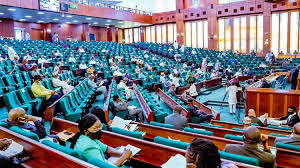The 10th House of Representatives marked its first anniversary on June 13, 2024, highlighting its achievements while facing criticism from some quarters. The House claimed it accomplished more in its first year than any previous assembly since Nigeria’s return to democracy in 1999.
A Busy First Year
After its inauguration, with Abbas Tajudeen as Speaker and Benjamin Kalu as Deputy Speaker, the House immediately outlined a legislative agenda focused on improving governance, security, economic growth, and social welfare. The Speaker pledged to address issues such as insecurity, unemployment, and education through close collaboration with the executive and judiciary.
In its first year, the House introduced 1,351 bills—the highest number ever in a first session—passing 89 of them. Key laws included the Students Loan Bill, aimed at easing access to higher education, and amendments to the Electricity Act to encourage renewable energy investments. Additionally, 679 motions were introduced to push government agencies to fulfill their mandates.
The House also carried out oversight functions through public hearings and investigations, reportedly recovering mismanaged funds and correcting lapses in government operations.
Criticism of the Assembly
Despite its achievements, the House faced criticism from political observers, including Salihu Lukman, a former APC National Vice Chairman. Lukman accused the legislature of being too submissive to the executive, labeling it a “rubber stamp.” He expressed disappointment over the quick approval of executive bills, including multiple budgets, without adequate debate.
Lukman also criticized the government’s subsidy removal and currency deregulation policies, blaming them for worsening living conditions. According to him, the lack of rigorous legislative scrutiny allowed these decisions to go unchecked, leaving Nigerians to bear the brunt.
House Defends Its Record
In response, the House’s Deputy Spokesman, Philip Agbese, dismissed Lukman’s comments as unfounded. He accused Lukman of seeking attention with baseless claims and defended the leadership of Speaker Abbas and Senate President Godswill Akpabio. Agbese maintained that the legislature is committed to addressing Nigeria’s challenges and ensuring progress.
Looking Ahead
As the House enters its second legislative year, Speaker Tajudeen called on members to focus on delivering solutions to Nigeria’s persistent issues, including poverty, unemployment, and insecurity. Analysts have advised the House to take criticisms seriously and prioritize accountability, as this would ultimately benefit the citizens.
While the debate continues, the task ahead remains clear: the House must strike a balance between collaboration and maintaining its independence to truly represent the interests of Nigerians.

